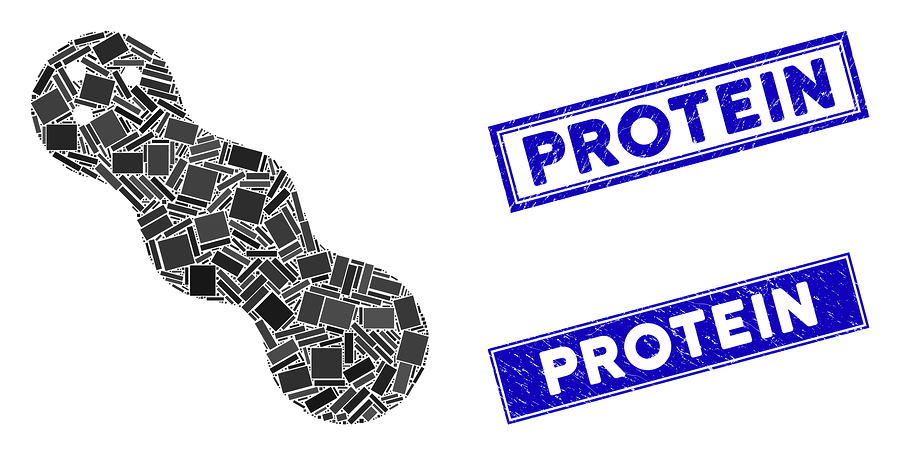Protein is key to good health so let’s talk about the benefits of protein. Protein, like fat and carbohydrates, is classified as a “macronutrient. This means that your body needs a large amount of it to function properly.
Here’s just a small list of why protein is so important:
Every cell in your body has a protein component.
Your nails and hair are mostly made of protein.
It is needed to build and repair tissues.
It is used to create enzymes and hormones.
It is a key building block for muscles, cartilage, bones, skin, and blood.
And while your body can store fats and carbohydrates, it does not store protein. If your diet is lacking in protein, then it will cannibalize the above tissues causing health concerns.
Benefits of Protein – The Basics
There are two general areas that cause confusion in the area of protein. They are:
How Much Protein Should I Consume?
What Should Be My Protein Source?
The RDA or Recommended Dietary Allowance of protein for adults 19 or older is 0.8 grams per kilogram of body weight. Since most of my readers live in America this translates to .36 grams per pound of body weight.
For example, a person who weights 150 lbs would need to consume 54 grams of protein per day.
But many feel this RDA is low. Especially for older adults who need to consume more protein to help them maintain their muscle mass. Here the recommendation is 1.0 to 1.2g/kg, which would be .45 to .55g/lb. This makes the average .5 g per pound.
If you’re 55 or older, then your protein intake per day should be half your body weight. If you weigh 150 lbs, then your protein intake should be 75 grams.
Because your body cannot store protein, you need to consume your protein throughout the day. Usually in amounts of 20 to 30 grams per meal. In part two of this series on the benefits of protein, I’ll give you suggestions on foods you can eat that will help you get your protein intake.
Now when it comes to protein there are two basic sources:
Animal-based proteins. This is how the vast majority of American adults get their protein. This could include meat, seafood, eggs, and whey. Stay away from processed meats as they have additional health risks that you don’t need to expose yourself to. And some animal-based proteins like fish offer heart-healthy omega-3 fatty acids.
Plant-based proteins. My favorite in this area is pea protein isolate. Some prefer brown rice. For many in the world beans are a great source of protein. Others prefer nuts. In fact 1 ounce of almonds gives you 6 grams of protein, which is almost as much as you would get in 1 ounce of broiled ribeye steak. Whole grains can also be another source of vegetable proteins.
8 Benefits of Protein
As I stated earlier, in Part 2 I’ll provide you with recommendations on food and snack choices to help you get your daily intake of protein. And to encourage you to read this second part I want to list 8 benefits of protein:
Benefit #1 – Reduces Appetite and Hunger Levels
Protein is more filling than fats and carbohydrates. And the reason why is that it reduces your level of the hunger hormone called ghrelin. Plus, protein boosts the levels of peptide YY, which is a hormone that makes you feel full.
Benefit #2 – Increases Muscle Mass and Strength
Not only is protein key to increasing muscle mass and strength, but it also helps to prevent muscle loss when people diet. And it helps older adults slow down the natural loss of muscle tissue as they age.
Benefit #3 – Good for Your Bones
You will see literature that suggests high intake of protein creates an acidic environment in your body, leading to calcium being taken from your bones to help offset this acidic load. However, most long-term studies show that protein rich diets actually lower the risk for osteoporosis and fracture by helping to maintain bone mass.
Benefit #4 – Boost Metabolism and Increases Fat Burning
High protein intake can significantly increase your metabolism and the amount of calories burned per day. In one research study, the high-protein group burned 260 more calories per day than the low-protein group.
Benefit #5 – Lowers Blood Pressure
In a review of 40 controlled studies, increased protein intake lowered both systolic and diastolic blood pressure.
Benefit #6 – Helps Maintain Weight Loss
There are multiple studies that show that high-protein diets boost metabolism, reduce caloric intake, and helps to eliminate cravings. This then results in weight loss. And it also helps to reduce weight gain by 50%.
Benefit #7 – Does Not Harm Healthy Kidneys
While high protein diets can be problematic for people with kidney disease, this is not the case for people with healthy kidneys. There are numerous studies that show that high-protein diets to not have any harmful effects on the kidneys.
Benefit #8 – Helps You Stay Fit as You Age
As we age we all experience what is called sarcopenia, which is loss of muscle mass and muscle weakness. Eating more protein can significant slow down this process, which can then help to prevent frailty, bone fractures, and reduced quality of life.
As you can see there are numerous benefits of protein. The key is to learn how to choose the foods and snacks that will give the best sources of protein to improve your health.
Blessing Lives Through Nitric Oxide Therapy!
Dan Hammer

Leave a Reply
You must be logged in to post a comment.